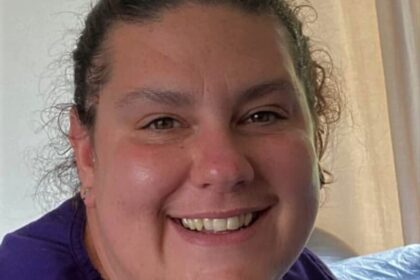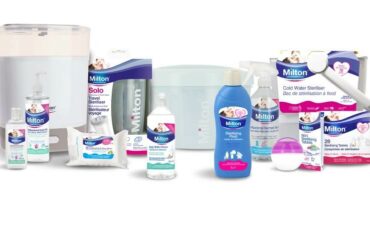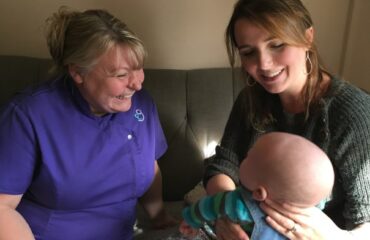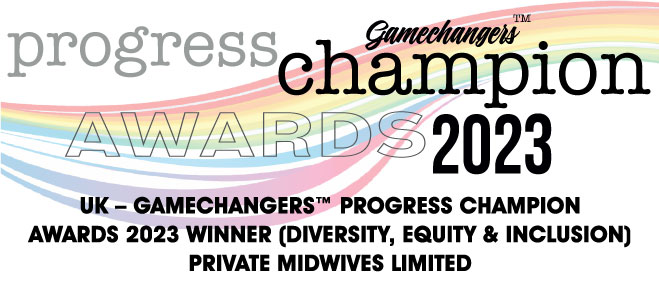
During your booking appointment there will be many decisions to make and questions to ask and answer. One of those decisions will be around whether you would like screening for you and/or for your baby. Screening may be something you have heard of, perhaps you have received a leaflet along with your booking appointment letter, but let’s have a look at screening options and how they might affect you. After all, you can’t decide what’s best for you and your family without learning about your options.
What is Antenatal Screening?
Antenatal screening tests are carried out by healthcare professionals and provide information about the chances of you or your baby having certain health conditions. Screenings tests are not diagnostic, meaning they do not provide a definitive answer, and they don’t carry substantive risks for you or your baby. Depending on the screening results you, as parents, can choose whether you want to have more accurate testing to diagnose or out-rule a condition. Some diagnostic testing carries some risk, which will be explained to you while you decide whether to proceed.
What does antenatal screening test for?
When pregnant there are screening tests for both you and your baby.
Maternal Screening Tests
Sickle Cell Anaemia. An inherited blood disorder where red blood cells are hard, sticky and flat in shape, making it harder for them to carry oxygen, and meaning that they tend to stick together, blocking small blood vessels, causing pain as well as potentially damaging complications. During pregnancy, Sickle Cell Anaemia is associated with preterm labour and low birth weight babies, although many women with Sickle Cell Anaemia can and do have a healthy pregnancy. Close monitoring and appropriate intervention can support your pregnancy and improve the chances of a term labour and a good birth weight for your baby.
Thalassaemia. An inherited blood disorder were the body doesn’t make enough of the protein haemoglobin, which is used by the body to transport oxygen. There are two different types; Alpha and Beta, and you can also be a carrier of the trait. Thalassemia is highly treatable with chelation therapy and blood transfusions, but again, close monitoring is advisable.
Hepatitis B. A virus that infects the liver, it is passed on by sexual contact and sharing needles. Hepatitis B usually doesn’t need any medical treatment and will get better with lifestyle changes such as having a healthy well-balanced diet, avoid alcohol, smoking and recreational drugs. However, Chronic Hepatitis B can sometimes require medication and can cause liver damage.
Syphillis. A bacterial infection, that is spread by sexual contact. If left untreated it can result in damaging effects to the heart, brain and nervous system. It can be successfully treated with antibiotics.
HIV. A viral infection that attacks the body’s immune system and is spread via sexual contact, blood to blood contact and sharing needles. Anti-retroviral medicines are used to treat HIV, these will need to be taken for life.
Fetal Screening Tests
Down syndrome. A genetic condition where baby has an extra chromosome, chromosome 21, hence the name trisomy 21. People with Down Syndrome experience a level of learning disability and may also have physical health challenges. Some people with Down Syndrome will grow up to be quite independent, whilst others may need extra care. As with us all, people with Down Syndrome are individual in their personality, likes and dislikes, and quirks, as well as in the level of extra assistance they made need across various aspects of their lives.
Edwards’ Syndrome. A genetic condition stemming from a trisomy of chromosome 18. There are 3 types of Edwards’ Syndrome: full form, partial form, and mosaic form, all of which have many associated health problems. Full form Edwards’ syndrome is considered to be a life limiting condition, unfortunately about 50% of affected babies will die before birth or shortly after being born, while only 10% will live beyond their 5th birthday. It is impossible to make predictions for babies who have partial form or mosaic form Edwards’ Syndrome, as how they are affected depends greatly on how much of the extra chromosome they have (partial) or how many cells contain the extra chromosome (mosaic). Specialist support and advice is crucial for both parents and babies.
Patau’s Syndrome. A genetic condition stemming from a trisomy of chromosome 13 which can severely disrupt development in utero and commonly results in miscarriage or stillbirth. Tragically, 9 out of 10 babies born with Patau’s will die before their 1st birthday, although babies with partial or mosaic form can go on to live a good quality of life depending on the severity physical challenges and learning difficulties. Again, specialist support and care are essential.
Detailed Ultrasound Scan/Anomaly Scan This scan will look at the structures of the internal organs, ensuring they have developed how and where they should. The sonographer will look for 11 rare conditions which include anencephaly, open spina bifida, cleft lip, diaphragmatic hernia, gastroschisis, exomphalos, serious cardiac, abnormalities, bilateral renal agenesis, lethal skeletal dysplasia, Edwards’ syndrome T18, Patau’s syndrome T13. If all appears well the sonographer will tell you at the time of your scan.
Should you receive a high-risk screening result at any point of your pregnancy, you will be supported by your midwife and the medical team around you. They will discuss with you the options of diagnostic testing, what is available and discuss the risks and benefits to you and your baby.
How is antenatal screening performed?
Initial screening methods are discussed with you at your booking appointment and include blood samples for the maternal conditions mentioned above. These should be offered ideally before 10 weeks of pregnancy or at the early possible opportunity during your antenatal care.
Trisomy screening for your baby, known as non-invasive prenatal testing (NIPT), includes taking your blood sample and/or reviewing a measurement via ultrasound called “nuchal translucency”, which is a fold found at the nape of baby’s neck. This screening is competed around the time of your dating scan, between 11-14 weeks of pregnancy. If you are outside this window, you should be offered a blood test known as quadruple screening, which will only screen for Downs’ Syndrome (Trisomy 21), this is available from 14-20 weeks.
The detailed (or anomaly scan) is completed around 18 to 21 weeks.
Along with screening there are a number of considerations when you start your antenatal care, find out more about what exactly antenatal care includes here
Receiving a High-Risk Screening Result
Upon receiving a high-risk result, your midwife will inform you in person, support you and discuss options for diagnostic testing, the most common of which are amniocentesis and chorionic villus sampling.
Amniocentesis can be performed between 15-20 weeks of pregnancy. During the test, a long, thin needle is inserted through your abdominal wall and, guided by ultrasound imaging, into the amniotic sac where a small sample of amniotic fluid is taken and sent for analysis. The consultation and procedure usually takes around 30 minutes.
Chorionic Villus Sampling (CVS) can be performed between 11-14 weeks of pregnancy. This is involves taking cell samples from the placenta for analysis and can be conducted either transabdominally or transcervically. Transabdominal CVS is completed via a needle being inserted through your abdominal wall to acquire a placental sample. With transcervical CVS, a small tube or small forceps is inserted through the cervix to acquire the sample. Again, the consultation and procedure usually take about 30 minutes.
Whatever your screening preferences are, the choice whether to accept or decline is yours. Similarly, what you choose to do with your screening results is for you to decide. My role as a midwife is to support those decisions and ensure that you have received unbiased information to enable you to make an informed choice, one that is right for you and your family.
If you would like to discuss how we can help with antenatal care or screening services or to make a booking please contact us on 0800 380 0579 or visit our costs page to find out more
 LANGUAGE
LANGUAGE





You must be logged in to post a comment.